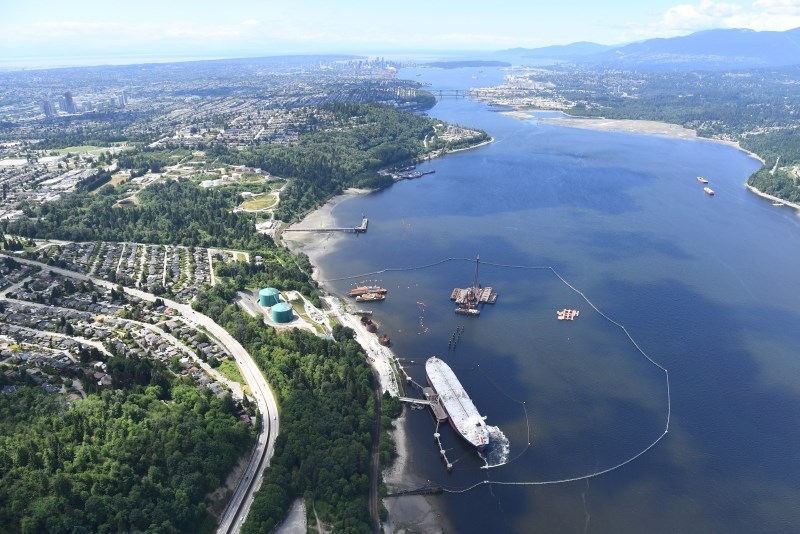Premier John Horgan continued his tightrope walk Tuesday over the deep political gorge that is the Trans Mountain pipeline expansion project, after Ottawa mounted a major power play to force his government on side.
He expressed a modest degree of disdain for Prime Minister Justin Trudeau’s remarkable $4.5-billion buyout of the fraught project, which includes the 65-year-old established pipeline and everything associated with the proposed new line.
Horgan plans to press on with the balancing act.
On one side he sees the three-member Green caucus that could force him out of office if he accepts the project. On the other is a major job-creating investment in B.C.’s future that has a sizable degree of support. In between is the jurisdictional muddle and the legal advice delivered when his government was sworn in — that their campaign promise to stop the project is invalid and can’t even be uttered now that they’re in power.
Other tripwires include the varying First Nations’ stances for and against the project and the fact that a private global bellwether company has just walked away from a huge Canadian investment mostly because of of the Horgan government’s stance. The decision moved through the global business network in a nano-second and represents a question mark about B.C. that the NDP will have to work hard to erase.
B.C.’s relationship with Alberta, now broken almost beyond repair, is also in mix.
Horgan and Green Party Leader Andrew Weaver celebrated their first anniversary as partners in power in the afternoon. A year ago they signed a working agreement that, after the Liberals lost a confidence vote, eventually convinced the lieutenant-governor to give the NDP a try in office.
You have to wonder if either of them imagined what the clause in the deal binding them to “stop the pipeline” was going to provoke.
For all the critical stresses building up over the project, the federal takeover probably works in the B.C. NDP’s favour in the shortterm. Being pushed around by Ottawa rankles people, regardless of the issue. Being pushed around by people using your own money to do it rankles even more.
Ottawa is now the owner-operator, not just the approval agency, which raises even more questions about what authority the province has to make any decisions about the project. Horgan conceded it gives the federal government more paramountcy, but tried to shrug it off.
He said that if Trudeau “believes [in] building a pipeline to export raw materials to other jurisdictions to create jobs and wealth in other places, he’ll have to be accountable for that.”
Even the most ardent pipeline backer has to be skeptical about Ottawa’s cheery projection about how this is going to turn out. The working premise is that the federal government will take charge of the project even before the papers are signed in the summer. Then a new Crown corporation will be formed to ramrod the project through, with Alberta backstopping additional costs if needed. First Nations and other entities, like pension funds, can buy in if they like. Then after the market settles, Ottawa will divest the line, and recoup its ante.
On paper, it’s similar to the creation of Petro-Canada in the mid-1970s, which confirms Trudeau’s eerie practice of following in his father’s footsteps. That didn’t go as expected.
The biggest risk is the assumption that the last major batch of court decisions over the project will come down on the federal government’s side. They have got a winning record, but a loss could shred the playbook.
Meanwhile, the B.C. NDP will get a public-opinion bounce by being the underdog on the side of the whales and salmon in a fight with a familiar old bogeyman.
But the buyout means even more pressure is coming over the long haul.



